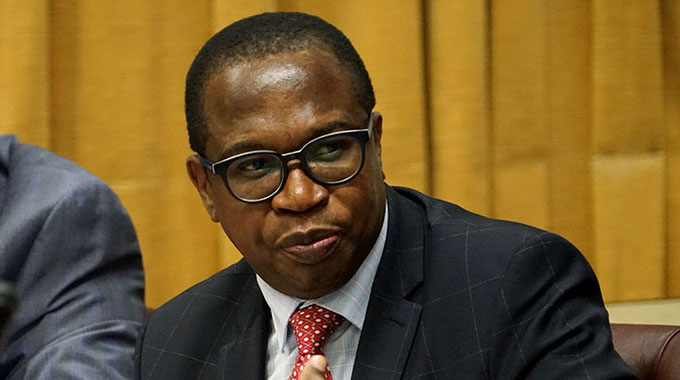Govt to create employment opportunities

Business Reporter
Government had started reviewing the process of evaluating the Green Job Assessment Model, an initiative that seeks to unravel economic and environmental challenges in the country through the creation of sustainable and decent employment.
The model is supported by UNDP’s Nationally Determined Contribution Support Programme, which assists the country to measure how green and climate policies affect job creation for women and youth, income distribution, skills development and economic growth, using tools developed by the International Labour Office (ILO).
The ILO tools provide an overview of the transition situation and potential at country level followed by quantitative and qualitative employment estimates for evidence-based decision-making.
Green jobs are decent jobs that contribute in the preservation and restoration of the environment and they assist countries in the reduction of greenhouse gas emission as well as supporting adaptation to climate change.
Green jobs are in line with the new National Development Strategy 1 (NDS1) 2021-2025, which covers the dimension of the environment with the objective being to ‘ensure sustainable environmental protection and resilience’.
“Late last year, Zimbabwe launched the National Development Strategy 1 (2021-2025), which identifies the need of creating at least 760 000 ‘decent’ formal jobs as a key macroeconomic objective towards the nation becoming ‘a Prosperous and Empowered Upper Middle-Income Society by 2030’.
“The creation of these jobs importantly identified in climate sensitive and backed sectors thereby making the need for the NDC policy decisions to be grounded by studies,” said UNDP resident representative Mr Georges van Montfort in a speech read on his behalf by the deputy resident representative (programmes) Ms Madelena Monoja on the Validation Workshop on Green Job Assessment Model recently.
“The Green Jobs Assessment has come at an opportune time to contribute to the revised NDC and it is my sincere hope that the assessment will immensely contribute to the NDC revision process.
“A quick glance at the draft green jobs assessment, we see that generally climate change mitigation measures will have positive employment effects for all skills and genders, and of course this depends on a number of factors and investment sizes and criteria’s.
“I believe that mitigation interventions like hydro power construction and operation, conservation agriculture, commercial and off-grid solar, and energy efficiency measures will all lead to huge employment creation while also leading low emissions economic development,” he said.
He added that UNDP will remain committed to supporting the Government of Zimbabwe in the NDC revision process and their subsequent implementation.
“UNDP continues committed to supporting the Government of Zimbabwe in fulfilling its vision 2030 and Sustainable Development Goals implementation as evident by us gathering this morning to validate this Green Jobs Assessment Model,” said Mr Montfort.
Speaking at the same event ILO country office manager for Zimbabwe and Namibia, Ms Hopolang Phororo, who was being represented by Mr Jens Dyring Christensen, focal person of Just Transition for Eastern and Southern Africa, said venturing into agriculture will help to close the unemployment gap in most countries in Southern African.
“With the leaving no one behind principle, it is also important that Zimbabwe consider the inclusion of the informal sector into the Just Transition Implementation Strategy.
“Tackling informality is a very complex and long-term task that requires its root causes to be addressed.
“Such causes are multiple and relate to the economic and institutional environment and also include hazardous events, such as climate catastrophes or pandemics.”
She urged Zimbabwe to roll out various programmes that encourage women and youths to adopt to modern and sustainable forms of green businesses.
“Technological change, globalisation, demographic trends and climate change have significantly changed skill needs for new and current jobs and for the future of work.
“The growing importance of sustainable development and the shift to a low-carbon and climate-resilient economy will also require new skills and qualifications, offering great potential for the creation of green jobs but also implying structural changes and a transformation of existing jobs, “ said Ms Phororo.
“It is important for Zimbabwe to also consider the adoption of green skills in Technical and Vocational Education and Training (TVET) and Skills Development to capacitate people to play an active role in the green economy”.
The director of Climate Change Management Department, under Ministry of Environment, Climate, Tourism and Hospitality Industry Mr Washington Zhakata said green jobs innovation among women and youth is an engine of social and economic transformation of the country which should be harnessed.
“Government is also working on implementing the National Development Strategy 1, which recognises that the country’s economic growth is anchored on productive sectors which heavily depend on the environment for production inputs.
“Key strategies identified in the NDS1 include implementing climate adaptation and mitigation actions which will need to be integrated in all the country’s development planning frameworks.
“This current analysis on how a transition to a low carbon economy can be just and inclusive for all will also assist the government in identifying the areas where ‘760 000 formal jobs over the five-year NDS1 period’ can emanate,” he said.
Green jobs embrace sustainable green business, which is an enterprise functioning in a capacity where no negative impact is made on the local or global environment, the community as well as the economy.
This correlates well with the preamble of the Paris Agreement on climate change, adopted in 2015, which underscores close links that exists between climate action, sustainable development and equitable transition.










Comments